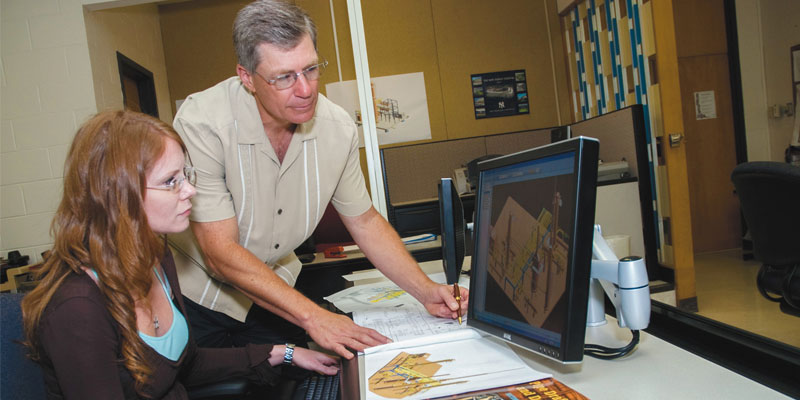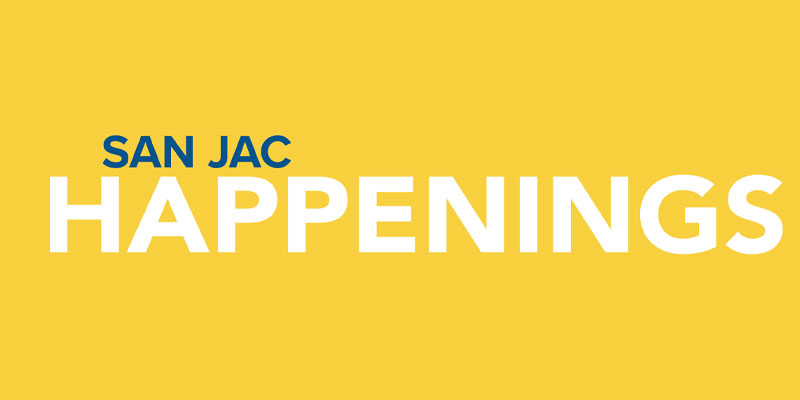
When turning 65 is around the corner, it’s time to prepare for Medicare. Taking the first steps can seem daunting, so getting expert advice is essential.
Jasmine Johnson, San Jacinto College health information management professor, teaches a variety of courses in the medical billing and coding programs. Elizabeth Smith, owner of Elizabeth Smith Life and Health Insurance, teaches continuing and professional development courses on Medicare basics.
It all starts with eligibility
“Medicare Part A and B eligibility begins three months before turning 65 and ends three months after the month you turn 65,” Johnson said. “Eligibility parameters also include people older than age 65 and people under 65 with certain disabilities or health conditions.”
Johnson advises applicants to visit Medicare.gov and review Steps 1-4 to learn the basics.
“Step 1 covers Medicare plans (Part A, B, C, D), cost, and how Medicare works,” she said. “Step 2 covers the sign-up process and when coverage starts. Step 3 reviews more coverage options available to Medicare recipients. Step 4 explains how to get services and the Medicare card.”
Understanding the parts
Medicare Part A helps cover hospital in-patient care, skilled nursing facility care, hospice care, and home health care. Part B helps cover medical services from doctors, other health care providers, outpatient care, home health care, durable medical equipment, and preventive services with a monthly premium. Part C, also known as Medicare Advantage, is a Medicare-approved plan from a private company that offers an alternative to original Medicare for health and drug coverage. Part D helps cover the cost of prescription drugs.
What to remember when signing up
“When choosing a plan, consider the cost, coverages, prescription drug coverage, your physician and preferred hospital, quality of care, and travel time,” Johnson said.
Look out for the enrollment-limited window before or after your 65th birthday, which will also help avoid late-enrollment penalties. Individuals who are 65 and still employed will have different coverage requirements to review. Become familiar with tax issues related to health savings accounts transitioning to Medicare.
Smith said “the Medicare plan that suits you at 65 may not be the same one you need at 80, so choose wisely” because it can be difficult to change the plan.
Who can help?
Medicare provides helpful tools and guidance at medicare.gov/basics/get-started-with-medicare/using-medicare/helpful-tools.
Medicare assistance is available 24 hours a day, seven days a week, excluding some federal holidays, via live chat on Medicare.gov or at 1-800-MEDICARE.
Smith suggests finding an agent who specializes in Medicare and is available in person.
Beware of Medicare fraud and scams
“Don’t buy anything on the phone, on the internet, or from anyone who sends you an ad,” Smith said.
A scope of appointment, a federally required form, must be filled out before an agent can discuss Medicare options with a client. The form serves as an agenda for the appointment, designating which Medicare insurance products the client wants to discuss.
“An agent cannot sign you up for Medicare,” Smith said. “We can show you and walk you through it, but we can’t do it for you. Some will offer to do that, but that is a red flag. If it’s a call center or something in the mail, it’s a red flag. If the call center is not giving you options and is telling you what to do, red flag. If they only write for one company, red flag.”
Learning opportunities at San Jac
CPD will offer Medicare-related classes at Central Campus in the fall. The classes are always on Wednesdays at noon:
- Planning for Retirement (Oct. 5)
- Medicare 101: What’s New for 2023 (Oct. 12)
To learn more, call 281-476-1893 or e-mail [email protected].
Neesha Hosein



